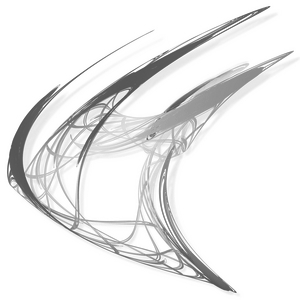Caro Clarke ▪ novelist ▪


About Caro Clarke
 I am a Canadian, born in Ontario, but by upbringing and choice a Westerner. I spent my childhood in various oil towns from Alaska to Newfoundland, but eventually stopped moving when my family settled down in Calgary, Alberta, Canada.
I am a Canadian, born in Ontario, but by upbringing and choice a Westerner. I spent my childhood in various oil towns from Alaska to Newfoundland, but eventually stopped moving when my family settled down in Calgary, Alberta, Canada.
I studied medieval history at various universities, ending up at Oxford University, where I graduated with a D. Phil. from Oxford University. It was a fantastic experience, especially as a mediaevalist, because I got to study in one of the most beautiful reading rooms on earth: Duke Humfrey's Library.
I moved to London to work in feminist publishing, then worked for various small publishers, in a bookshop, as a carpenter, a minder (bodyguard), a freelance editor, finally moving into website design and development, and worked for huge global financial services companies in the City of London for the final chunk of my career. I kept "retiring" to write full-time, and now I have done so for real.
I live in a flat in Little Venice, in west London, England with my spouse Fiona. We travel a lot, but we also enjoy London.
I have been writing since childhood. The early poetry is too painful to remember, but any writing is good practice, so my many little stories did not go to waste. I won third prize in a short story competition in high school. Proud! It was important, because it encouraged me take my writing seriously.
My interest then was in both historical fiction and science fiction, and my first published stories were science fiction and fantasy, but history finally took over. Because I am living in a country I did not grow up in, and the country of my youth is now half-strange to me, I feel I can't write with authority anything set in modern Britain or Canada. But the Past, in any case, has always been my real country, and I am most comfortable there. The advice to budding writers to write four or five novels, pick the best, and submit it to publishers, is rock-solid and, by chance, that is exactly what I did. Teaching yourself by doing can have pitfalls, but by gum the lessons are learned to the bone.
The advice to budding writers to write four or five novels, pick the best, and submit it to publishers, is rock-solid and, by chance, that is exactly what I did. Teaching yourself by doing can have pitfalls, but by gum the lessons are learned to the bone.
About my logo
My logo is the representation of a chaotic attractor. It was created by Valery Tenyotkin, who owns the copyright (I have paid for the use of it).
 Why did I choose a chaotic attractor to represent my writing? The process of inspiration can seem without reason, a chance thing, randomly striking yet, like the universe, it has an underlying structure. In the case of human creativity, it also has an end-point, which is to enhance our lives. In the same way, chaos only seems random, but is not. Chaos, in its scientific meaning, are the combined behaviours that have an underlying order, which I find both comforting and mysterious.
Why did I choose a chaotic attractor to represent my writing? The process of inspiration can seem without reason, a chance thing, randomly striking yet, like the universe, it has an underlying structure. In the case of human creativity, it also has an end-point, which is to enhance our lives. In the same way, chaos only seems random, but is not. Chaos, in its scientific meaning, are the combined behaviours that have an underlying order, which I find both comforting and mysterious.
Chaos, or rather chaotic systems, are unpredictable, but all of them have an end-point. This end-point is called the "attractor". The initial conditions completely determine how all the behaviours in a chaotic system will travel toward the attractor. The usual example, the flap of a butterfly's wings, never leads to unorganised nothingness, but to something also organised, such as a hurricane. It is the initial conditions that determine whether the butterfly's flap leads to the hurricane or to a century of mild summers or to you dropping that coffee cup.
All the changes of behaviour in a chaotic system can be mapped as dynamic x and y variables on a graph. If we draw lines between every mapped dot on the coordinates, we can follow the movement of the behaviours. The journeys these lines make might seem random, sometimes looping back again and again, densely filling in one section of the chart while leaving whole sections alone, but nevertheless, they all end up at the attractor their initial conditions dictated, or to say it another way, the initial conditions created the ending as soon as they came into being.
To me, this iron law of arrival is the essence of the initial inspiration. To have an opening scene flash upon your inner eye is to inescapably know, to have already delivered the entire story to its ending. My task, once I have been hit with that first lightning, is to work and work until I have uncovered every point of every journey of every part of the story: each character, each background or setting, the underlying themes, the connections that demand cohesion, the best words, in short, I work until I have charted the story I at first did not fully understand or even partially grasp. It is the story's inescapable, powerful attractor that drives me forward until I must, until I finally do, reveal its true and fully realised self.
www.caroclarke.com